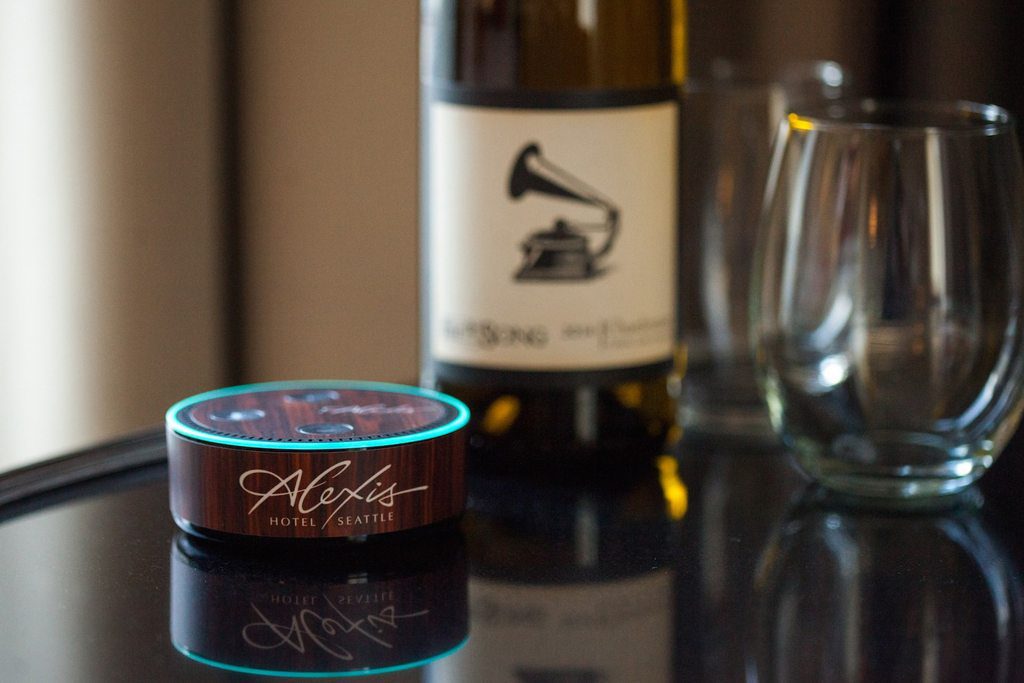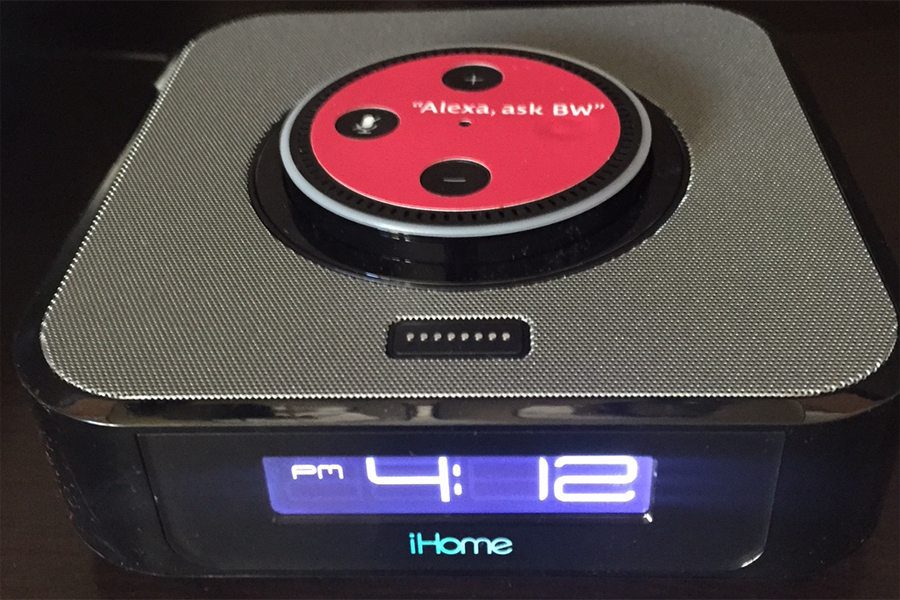Amazon Wants More Hotels Using Alexa Voice-Powered Services

Skift Take
Amazon has claimed at least two-thirds of the consumer market for voice-activated Internet devices. Now it wants to gain parallel market share dominance in enterprise use by pushing its Alexa service to companies.
On Thursday, the retailer's pitch for hotels was highlighted by chief technology officer Werner Vogels in a presentation at Amazon Web Services (AWS) re:Invent conference in Las Vegas.
Vogels cited examples of Amazon Echo and Echo Dot devices in U.S. hotels, noting that the Wynn in Las Vegas is putting ones in every room so that guests can control the TV, lower the blinds, adjust the room temperature, and make front-desk requests without using a remote.
The company debuted an Amazon for Business initiative Thursday that formalizes, coordinates, and bolsters its effort to drive the use of Alexa in workplaces and service providers like hotels. Companies like Concur have integrated to enable workers to access itineraries by voice, Vogels said.
For hotels, the main news is that there will be more support for enabling voice services on their properties and back offices.
Dozens of Trials
Since January, properties franchised or belonging to nearly all of the major U.S. flagship brands have tested the Echo Dots, including Marriott and Wynn Resorts.
Best Western has experimented with the devices at about a dozen properties. At Best Western Plus Hawthorne Terrace, the Echo device greets guests on arrival in the room. Guests can ask it for services like more towels or ask it for the hotel's recommendations on places to dine locally by cuisine and time of day.
Hotels work with third-party technology providers, not Amazon, to get in control of the replies, such as telling a guest the Wi-Fi password, and actions, such as opening a ticket in a third-party operations system.
Since the start of the year, 400,000 guests have been exposed to Alexa-powered rooms managed by Volara, a voice-technology company for hospitality companies.
Volara works with 25 U.S. hotels today — the largest install base among providers. Thompson Seattle is one. “Guests now get quick answers, while our staff spends less time on the phone," said general manager Amanda Parsons by email.
This year Volara's deployed systems have been automating an average of 240 item and service requests per 1,000 occupied room nights and fielding 700 guest questions about the property and neighborhood offerings per 1,000 occupied room nights, said CEO David Berger.
Volara is the only hospitality tech provider certified as an Alexa Enterprise Agency. But companies don't have to be certified by Amazon to manage voice-powered services for hotels. Runtriz, a guest engagement platform, is running Alexa at Best Western Plus Oceanside Palms in Oceanside, Calif.
Other technology companies, such as Voiceio, also offer to integrate voice-interactions into hotel systems.
Chicago's Best Western Hawthorne Terrace is testing an iHome iAVS1 Echo Dot docking station by Hotel Technologies that encourages guests to use it by adding a charger for smartphones and other gadgets, a dimmable clock display, and better speakers than Amazon products have.

Back-of-the-House Integrations
Voice requests for services are fed into hotel operations software platforms that adapt to handle voice-powered requests.
Many systems say they either automatically dispatch voice-powered messages to the right worker or track requests and their resolution in the right part of a database, including Amadeus Hospitality's HotSoS, Alice, Honeywell Inncom, Iris, Knowcross, TrustYou Messaging, and Whistle.
Exhibit A: Since the summer, Amadeus's system lets a guest attending a conference ask an Alexa-powered device for a group event agenda or a list of events via its sales and event management tool.
Hotels don't need to use Amazon hardware to enable voice-powered search, of course. Other hardware providers like Soundwall and Seura have incorporated Alexa. Voice-activated speakers can run in mirrors, lamps, clock radios, and even art.
Hotels also don't need Alexa as a natural language processing platform.
Google touts its own voice-powered speakers as a personal assistant that can also answer consumer questions about travel. The company declined to comment on any efforts to drive enterprise adoption.
Apple also pushes its voice-enabled Internet service Siri for consumers. This year, Marriott has been testing using Apple's Siri in guest rooms. Microsoft's Cortana is another potential contender.
Some hotels have expressed an interest in having Alexa act like a panic button for housekeepers in case of a problem, and companies like React Mobile, an enterprise safety platform, have added Alexa integrations.
With today's announcement of an Alexa for Business division, Amazon appears eager to speed up the momentum of adoption of its software and hardware in hotels.





